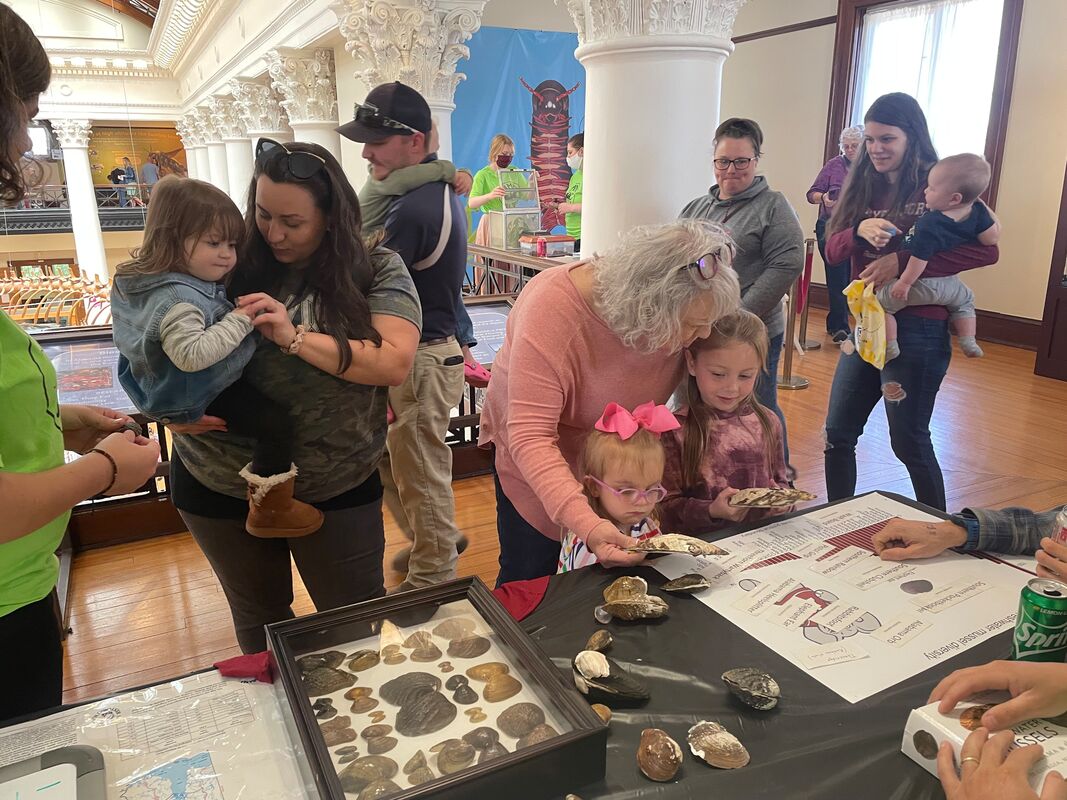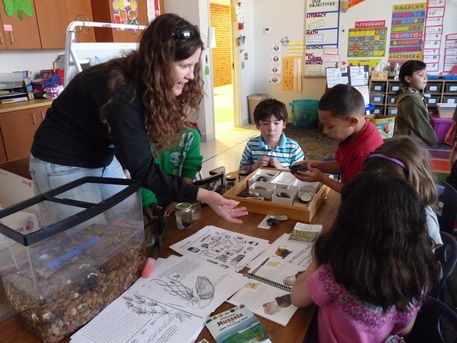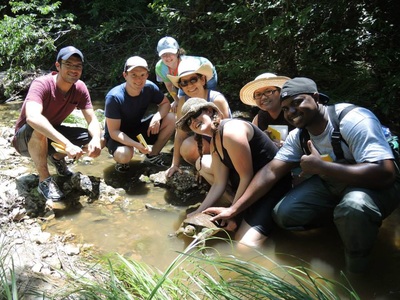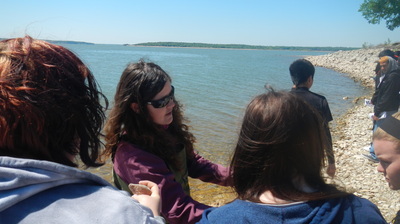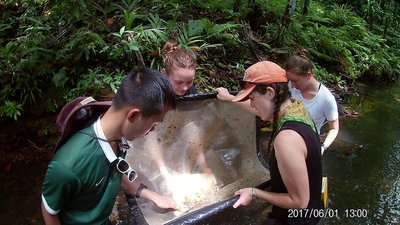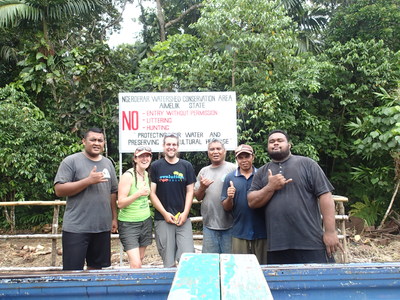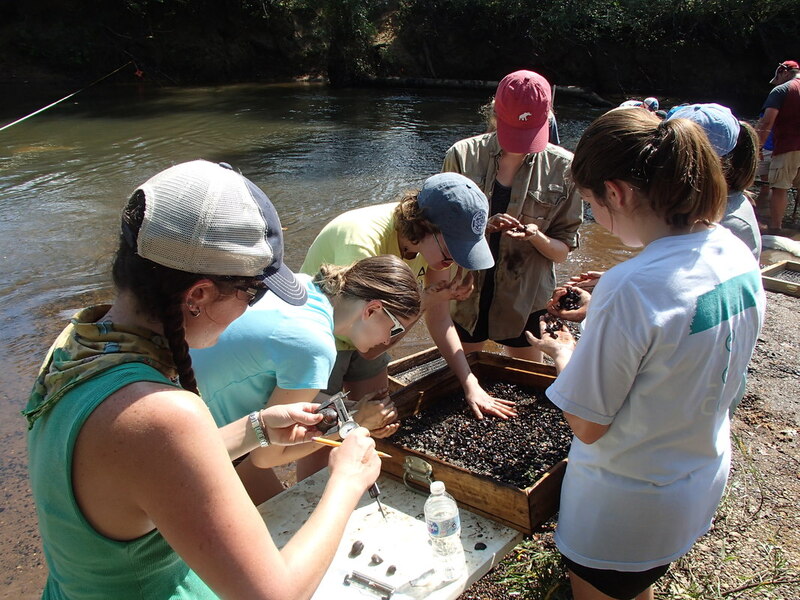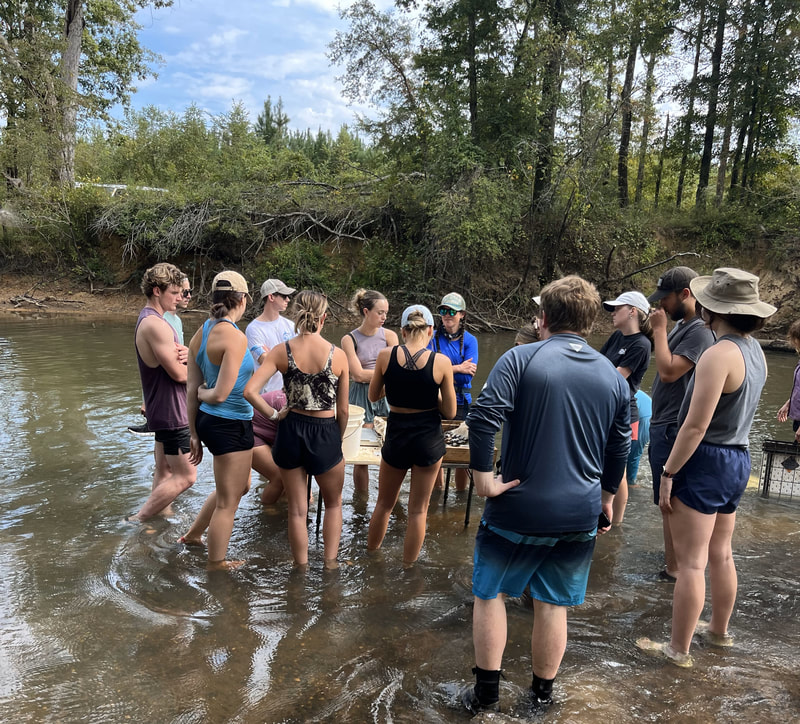|
I am passionate about ecology and aquatic resources, and I enjoy sharing this enthusiasm. Educational outreach is a rewarding opportunity to extend my research and interests outside of academia and to the general public. I believe that as I scientist, I am obligated to share my knowledge and help educate people about the natural world. I have worked with a variety of schools in Tuscaloosa, Oklahoma, rural southeastern Oklahoma schools, science fairs, Natural History Museums, after school programs, and citizen science groups.
My classroom outreach has included an organized Invertebrate Day at an elementary school, mussels of Alabama during football tailgates in Tuscaloosa, Bioblitzs, mussels of the Kiamichi River at an elementary school in rural southeastern Oklahoma, and outreach with high school students at the Oklahoma Biological Station in Kingston, OK. Activities have included hands-on mussel and aquatic insect identification, presentations on water quality and aquatic food webs, and field collections. Additionally, in collaboration with Stephen Golladay I have assisted with after school outreach activities in Bainbridge, Georgia. This consisted of in class instruction, field collections in local ponds with students, and microscope identification. I have also participated in collaboration with the Robert S. Kerr Lab (Environmental Protection Agency) in Ada, Oklahoma to assist with 'Water Day' on the East Central University Campus. I have presented on the biology of Ouachita and Ozark Mountain streams at this event. College, high school, and elementary students all attend this event. Lastly, much of my lab's work has been conducted on private property. Working with landowners has been a tremendous experience and I have found that we learn much from each other. I have supplied land owners with mussel identification keys for the species that occur on their property and their assistance has greatly assisted me in finding river access and mussel aggregations within rivers. My goals for public outreach are: 1) to enrich understanding of ecological processes and the natural world, 2) to engage people in the process of scientific inquiry through experience, and 3) to educate people on the interactions between human-caused environmental impacts and ecosystem processes. |

